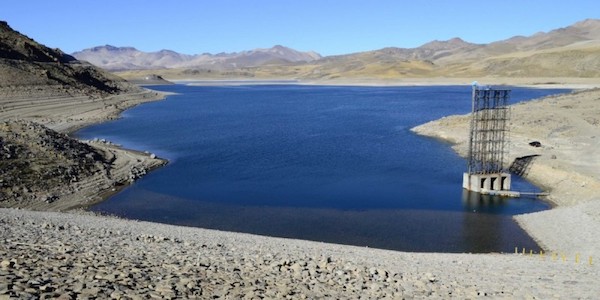Chile is today in the midst of an unprecedented constituent process 30 years after the return of democracy, where the possibility of a new constitution has opened a discussion about what sort of country we want, and which rights should be enshrined in the drafting of this fundamental document.
One of those rights under discussion, water, has taken on a central importance in the various self-convened councils and assemblies that have been formed throughout the country in recent months.
Chile is one of only two countries to enact the full privatization of its water supply, management and sanitation services. This has led to the imposition of a for-profit model where it is possible to own water resources in perpetuity, even without having land.
Since the imposition of the 1981 Water Code—written less than a decade after General Augusto Pinochet took control through a military coup d’état—a system took hold in Chile that granted water rights to mining, forestry, agro-industrial, and hydropower companies, effectively inaugurating a permanent subsidy from all Chileans to the private extractive sectors.
The consequences of this system have been disastrous. Due to the privatization of Chile’s water supply, 90% of non-consultative rights belong to only three companies. In effect, those who control the distribution of water in Chile, primarily Águas Andinas and Esval S.A., are transnational corporations which do nothing more than control rates and human consumption, keeping prices unfairly high while delivering poor service and insufficient supply.
In other words, Chileans have been forced to live under a neoliberal system that conceives of water strictly as a commodity, and one that puts the profits of private companies over ordinary people’s rights.
The importance of the ongoing protests and constituent processes which are working to remake Chile’s constitution see deprivatization as a common good as important and vital as water is to human life. It is therefore necessary to build a new water democracy, one which takes into consideration international water legislation and the experiences of working people in Latin America and around the world.
Many countries including Bolivia, Ecuador, Nicaragua, Mexico, Uruguay, Honduras, the Democratic Republic of Congo, South Africa and Uganda have made explicit the human right to water. This makes clear the importance for Chile to introduce legislation to safeguard our water resources and enshrine protections at the constitutional level.
However, declaring water as a human right is not enough, particularly if there is no progress in legislation that goes beyond anthropocentric ideals. Put another way, human beings alone cannot be at the centre of the discussion about water rights; we are not above other living beings and ecosystems. When we are discussing new rights, therefore, we must do so while considering the natural environment and our relationship to the biosphere.
The case of Ecuador’s constitution, the only one in the world to declare water as a human right, shows us an alternative path that could be followed. The same can be said with regard to Colombia, New Zealand and India, which have recently granted rights to rivers and other bodies of water.
However, as the experience of these countries shows, a strong legal framework is not enough if transnational companies are allowed to continue their extractive operations with relative impunity.
We must therefore abandon the logic of privatization, but also that of nationalization, if the end goal is simply to exploit natural resources and sell them on international markets. The discussion needs to move beyond this dichotomy, and should also focus on how to generate local territorial management mechanisms that consider environmental protection, river basin management, social equity and the resolution of ongoing water conflicts.
In short, the politicization of water in Chile comes at a vital historical moment not only for the country, but also for the planet. In the midst of the climate crisis, the fate of industrial civilization is at a crossroads, and the future of human survival on the planet has been thrown into question. The stakes could not be higher.
Andrés Kogan Valderrama is a sociologist and PhD student in Latin American Social Studies. He is the editor of the Observatorio Plurinacional de Aguas.

